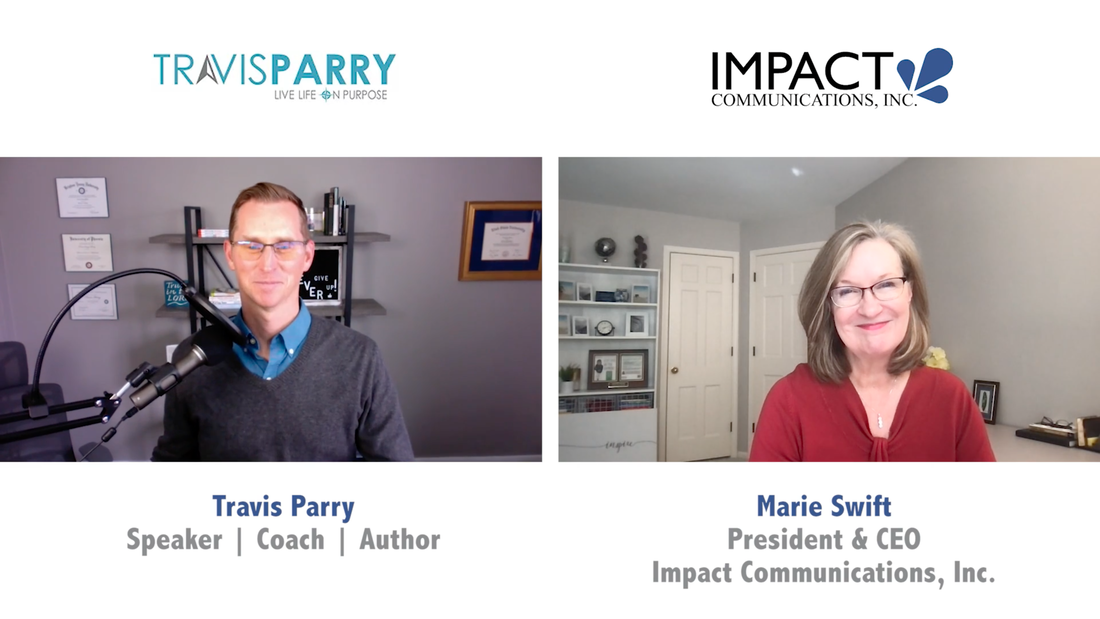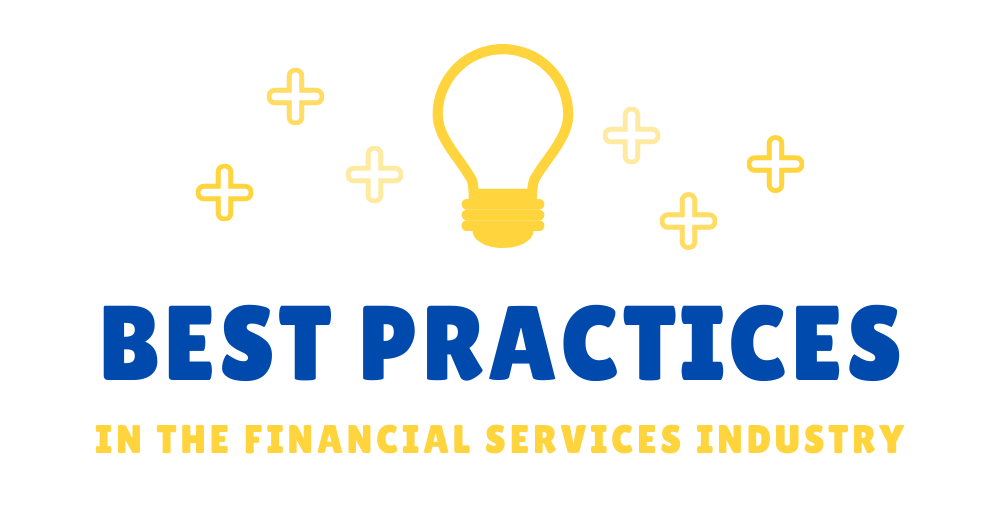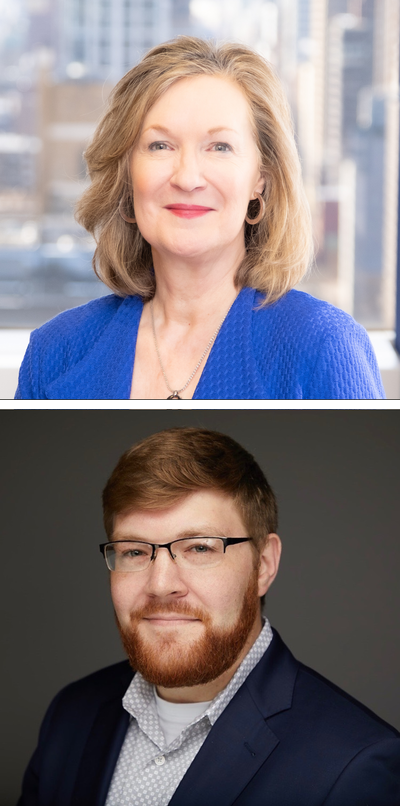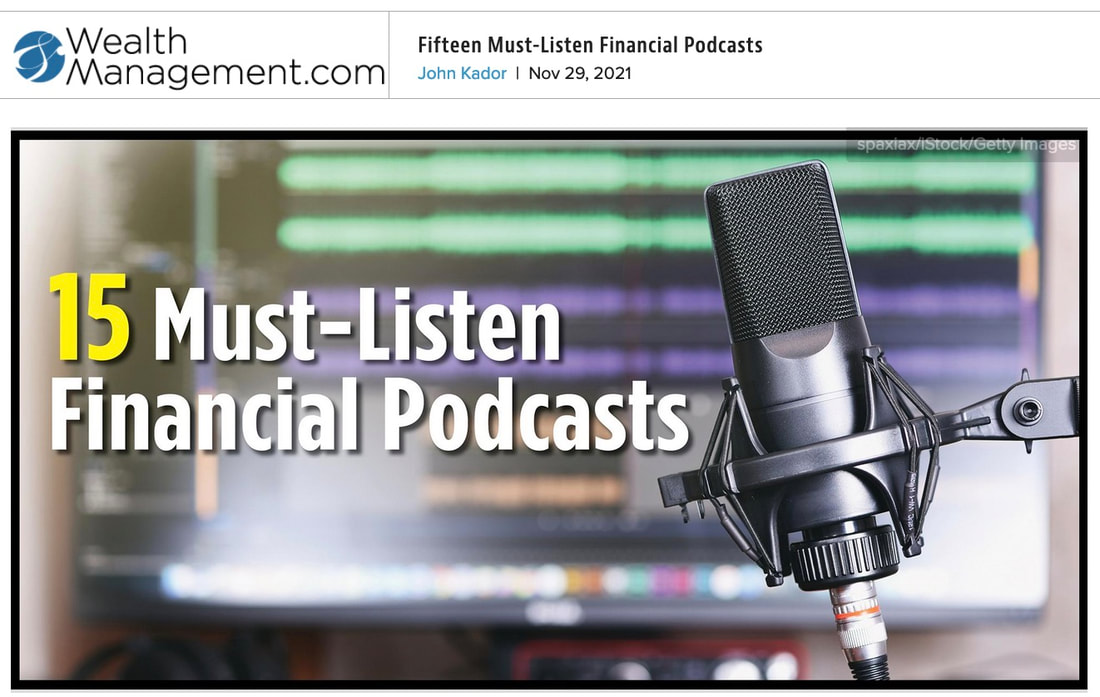|
In this Swift Chat video conversation, Marie Swift of Impact Communications, Inc. speaks with Travis Parry, a speaker, coach and author who has a Masters degree in Psychology and a Doctorate in Family and Human Development. Travis focuses on helping people achieve balance in their life. The two discuss what led Travis into this field and how he helps advisors reach their personal and professional goals.
We need to stop just focusing on personal development. And as advisors, a lot of us are into personally developing and working on ourselves, becoming better. We need to involve family. We need to involve our spouse. Not only is it our highest motivation, but they're our closest allies." ~ Travis Parry, Ph.D. Transcript of Conversation
Marie Swift: Well, hello everybody. And welcome back to Swift Chat, where we talk about best practices in the financial services industry and fiduciary advisors, at the core. And today I'm joined by Dr. Travis Perry. And Travis, you and I have something in common that our listeners and viewers may not know about, it's a state, it's called Utah. So, tell me where you are in Utah, and what's cool about being there.
Travis Parry: We live in Cache Valley. C-A-C-H-E. And it's the most Northern area, really, right before you hit the Utah or Idaho border there, where Bear Lake is located. It's a beautiful place. It's a turquoise. They call it the 'Caribbean of the West.' Where you can come and enjoy just an amazing time, the summertime. In the wintertime, it gets freezing cold, and we deal with it while we go skiing, we get above the cloud cover and get warmed up and go snowboarding and skiing. So, we love that. But what's interesting for financial advisors is the term 'Cache Valley' is that the traders, fur trappers, used to come through this area, you know, hundreds of years ago. And they would keep their trappings here. They would cache them, store them, save them for later as their investment. And they would come back and trade with others in the region. And so, I kind of find that very enlightening as I'm serving financial advisors, to help them to increase their business, have better balance in their life. And they're serving their clients. And here I am doing that out of Cache Valley. So, I find that interesting. Swift: I had many good summer days at Bear Lake. We would go up there often. And what's interesting-- and then we'll get to the heart of our topic today-- is in Bear Lake it's hard to sink because I think there's a high degree of lime in the water and it's hard to sink, which is why it's so turquoise. It's a beautiful lake. Parry: Yeah. Wonderful. Swift: So, let's talk about your genesis. How did you get into this business of helping advisors with their balance, with their happiness factor? Parry: You want a hundred percent transparent and honest? I was an advisor who lost balance. I got into the industry because of the flexibility, the freedom, and the financial allure. I was not necessarily one who really understood finances very well. And so, I wanted to know it better. So, I thought, "well, what a better way than being a financial advisor, a financial planner?" And I really loved helping my clients with their goals, but felt a little bit, maybe constrained, with only helping them with their financial goals when I knew, gee, they needed help in their relationship, they needed help on these other areas that when we talk of their financial plan, they open up and tell us about. So, I started getting more trained in these other areas and realized the biggest factor to getting any of these goals accomplished was time. And I was struggling with my own balance, and I had a very personal experience that threw me way out of balance and really helped me understand and look at life in a completely different way. My father passed away at 49, and I was the financial advisor in the family that was helping my mom to really start a new life and move on from that tragic experience. And you would think, "well, wow, Travis, you should have been more dedicated to being a financial advisor." I was for a time until I realized, "gee, this is really pushing me out of balance in everything that I'm doing." And I started to train others on this, my other clients on time management and balance, and soon realized, "well, gee, a lot of these are other advisors. They need this." And boy did they. I started getting into the research into 2014. FPA came out with a study all about time management and balance for financial advisors and how we're three to five times more likely than any American, average American, to be a workaholic. And so, I decided to just focus my efforts on insurance and financial advisors in this whole industry. Because really, they need me, and I understand them. I think it's a win-win. Swift: So, in reading through your resume and looking at your website, you have a lot of great credentials. You have a master's degree, and I think you've focused on understanding stress. And I think that's really important, especially now-- who knew we'd be living through a global pandemic and all this social unrest and the divisions that we have in our country? But then you also have your PhD, which-- is that about family dynamics? Tell us a little bit about your PhD and your masters. Parry: The message was, "Hey, let's focus on stress and goal-setting." And the last class that I had really in the last project, the paper that I did, had everything to do with motivation and achieving goals. And we found that there was a study out there-- everybody knows the Maslow's Hierarchy of Needs, right? Well, at the very top is 'self-actualized.' Which, by the way, Maslow himself admitted that most people don't actually ever achieve in their lifetime. So, there's this theory. That's not fact, it's theory. In 2010, some researchers came out, these were not family researchers, they were psychologists, they were neuroscientists. They really wanted to understand: is this theory legitimate? Because most of what their findings were saying was "no, there's some kind of hiccup here." There's some kind of issue that they're not addressing. So, they revised it. And I talk about it in the end of my book, but the revised Maslow's Hierarchy of Needs is at the very top, our highest motivation in life, is to be a parent and to have a spouse. And retain that spouse or mate through our life. And I thought, "well, gee, here, we've got these two pyramids side by side. And essentially what these psychologists are saying is that Maslow had a lot of the internal workings correct. But really the highest motivation or i.e., self-actualization was really being a parent, propagating our species, having a mate for our time on Earth." And so, I turned and looked at my master's program in psychology and thought, "well, how much does this really teach me about relationships? What do I know about families?" What do I know about-- just except my personal experience--I realized I needed to do a PhD to understand families, family dynamics and at the exact same time, the whole balance thing started to come into play and it was a perfect time to experiment with my theory, take Maslow's and really go with it and try to understand how I can help financial advisors to have better balance with their family. Family Dynamics: Strengths-Based Approach Swift: So, family dynamics, that is a very complicated subject. During the pandemic, we really got to spend a lot of time together with our families, at least I was blessed to and I found that it was a blessing. We have better conversations. We got to know our daughter's boyfriend better than we ever thought we would because he was with us for dinner almost every night. But I don't think that all families have that particular scenario. If you could just think a little bit about the pandemic, whether it's your family or families you know, just comment on the dynamic of stress, especially with the uncertainty that came with the financial crisis and the health crisis. Parry: Yeah, great question. I actually have on Friday a whole seminar I'm doing for another company about how to manage stress during the holidays. If anything has taught us about how to deal with family dynamics and coping, it's during these last couple of years. So, there's several different theories and I won't bore you with all of them, but essentially stress theory is ABC-X. Something happens, people react, it creates more problems... and then there's a solution. We see it when there's any sort of issue in the family, take it maybe a teenage daughter gets pregnant-- I'm just throwing this out here. How do parents react? She's underage-- does she marry the boyfriend? Like what does the family do? And eventually the family does come to a solution. That's one way of looking at families and how to cope with the stress that we're all dealing with. I personally like to take the strengths-based approach. What do families already have? What are your strengths? What are your talents? How can you band together to make what family systems theorists would call 'better than the sum of the parts' and how do we work together to make this happen? In the back of my book, Achieving Balance, I talk about: we need to stop just focusing on personal development. And as advisors, a lot of us are into personally developing and working on ourselves, becoming better. We need to involve family. We need to involve our spouse. Not only is it our highest motivation, but they're our closest ally, in a good relationship, right? In a good, healthy relationship. That's all part of the equation. But if we can focus on what we have in common, what are our shared goals? What are our shared values? How do we make more of that? Quit worrying so much about the stress. Quit worrying so much about the problems in families and focus on what you have good. And yes, you can deal with those issues. How you deal with those stressors is important, but focus on where you start, where your values are. So, to apply that to what we're dealing with now, the pandemic, social unrest, all these other things that are happening, maybe even inflation, all these things that are going on in our family lives. It's a great time to have conversations, have goals as a family. Work together to try and achieve your financial goals, your relationship goals, the goals for your children. There's lots of great things we can talk about there that are so important. And that's where I focus most of my coaching, consulting, and help that way. As the strengths-based family values, family goals, and direction. Family Business Balance Swift: It occurs to me that so many of the advisors that I know and love, they are like little family tribes of people. And sometimes they actually have their families in their business, too. I know I have family members in my business. There's something interesting that happens when you're working with somebody that, you know very well, whether it's a long-time close friend or a spouse or a sibling, or maybe even a child. How do you see that playing into your work, helping advisors scale and grow and be happier with their businesses? Parry: These are two worlds that we tend to say: work and life. And yet the more that I've researched balance-- and notice, I didn't talk about work-life balance-- the more I research balance is that yeah, we have maybe 10 main areas of our life. And we tend to have our spiritual, our physical health, our relationship with our spouse, family, friends, community, fun, and rec. We have all these different areas, and I think that's only the eight that I named, but, self-improvement, all these areas that really make up who we are. But we are the core, right? We're the same person and we should be the same person in different areas. We have different responsibilities. How do you balance all that? And how do you keep that aligned with when you have family involved in work? It is a separate dynamic because family-owned businesses-- I've done some research here-- family-owned businesses, the majority of them don't ever make it to the second generation and a very small percentage, only like 13% make it to the third generation. I found that in when an advisor says, "alright, I want to be done with my business. I want to transition out." Most who see this happening in the next five years, do not have a plan. They don't have an exit strategy. They don't have a plan for that. They may have some contingencies. They may even have somebody in mind, but they don't have a plan. So, what do you plan for? How are you planning to get out? And that really begs the question of, if you're planning to exit the business with family, how do you plan to exist with the family? What goals does the family business have? Do the employees have the same shared values as the company? This is where I find most of the rub. Most of the rub is where a family member is working for the company, and they think they're doing the company good. And in reality, their values maybe don't match up with what the company's core values are. Or what the owner thinks the core values of the company are. A lot of times the employees don't know what those values are, and if they line up. And quite honestly, if you want to have a cohesive company and you want to be able to scale with that group, everybody's got to be on board. It's just like family goals. When I set family goals with my family, we all communicate about it. We talk about it. We have a family council every Sunday night, and we talk about their goals, talk about what we want to accomplish as a family. And we see how those goals work together. And then we ask, how can we support you? And how can we all support this family goal? A family business in theory runs the same way. And a good business owner would take time to interview each of their employees, family or not, and find out where they are. How can we help you to achieve your goals by working here at this business? Separate entity, but those conversations need to happen. Sadly, they don't. Sadly, most of it is assumed, you're working here because you're a family member or maybe the non-family members look at those family members and go, gee, you're getting a better gig because you're daddy's son or daughter, whatever and so there's some of that. But I think if we really get back to again, brass tacks with goals and values of the company, and goals and values of the individuals, when those match up and those align, there's really, I mean, the sky's the limit on that one, Marie. Family Council Swift: So, you said something about Family Council and on Sunday evening, that's a beautiful idea. And how would a business owner... would they do like one-on-one interviews? Would they do a company retreat? Just talk about how you get to that cultural shared values aspect. Parry: Wonderful. I look at it again from the family system. And if you're a family-owned business, you're a family system. You can't escape it. The dynamics might shift a little bit. But a lot of times, at least the businesses I've interviewed and consulted with, they look at the business owner as kind of like the 'father figure.' And a lot of times he or she is the father or the mother of the family, or grandmother or whatever. I worked at a third-generation family-owned business. So, I see it, personally, too. I grew up with that. And there's good and bad. But I think one of the best things you can do is have a retreat, either at the end of the year, or the beginning of the year. How did we do with our goals? What are we doing for the next year? I know a lot of advisors are good at this. They're like, "okay, we're fourth quarter. It's time to plan for all of next year." Do it, wonderful. But sometimes that planning only involves the owners or majority ownership. Why not-- have maybe a pre-meeting-- but then involve everyone in the company. Everybody plays a part, regardless if they're working there part-time, full-time, they're in ownership or not. They all are a part of this great family system. And the more you can involve, the more feedback you can get, the better. Now there's various applications to this. How much do you listen to? How much do you disregard? I'm a big believer in the more conversation, the more open, the more transparent, the better the family system will work. And we can get into family systems theory... but the reality is the more communication, the better the back, the better the decisions that we will make. Look at LinkedIn. I'm on LinkedIn all the time. I have a family or a community of people that follow me, 5,000 plus people. I've got all these connections, but when I throw a poll out, I'm looking for feedback. Polls are the number one interaction source on LinkedIn right now. Why? I have no idea, but I assume it's because LinkedIn algorithms push it for whatever reason, it's good data collection. Maybe they'll use it later, Microsoft down the road. But I think people really like to know and get this feedback. Get the feedback from your employees and the family system. The other thing that we do as a family: my wife and I interview each of our children once a month, one on one. It's us with them. So, Family Council with everyone, one-on-one with the individual children to see where are their goals? How can we help them? How do we support them? And one thing that my wife is so good at asking at the end of all these is: how can we be better as parents? With a man who has an ego and like, "I'm the dad," a male, alpha, whatever, that is difficult sometimes to bite that off. But man has that changed our relationship with our kids. Because they know that we're not perfect. We're trying to figure this out just as much as they're trying to figure out how to be human. And so, when I had that realization as a kid, it changed my relationship with my parents. Unfortunately, I was like 17 when I finally figured that out, I was slow to learn. But as an employee, it’s so nice to have managers, business owners, maybe you can't interview all 300 of your employees, but maybe the managers can interview and see how people are doing. But ask about their personal goals. Not just in a once a year setting of, "Hey, how are your personal goals doing with how we're lining up as a company?" But throughout the year. Coach them, mentor them, guide them as needed. Or provide that coaching and guidance through other consulting or coaching outside. And it'll be amazing how cohesive this family system really becomes. Swift: So, is this some of the work that you would help a company with Travis? Would you actually help facilitate a company retreat? Parry: Absolutely. I've done it. And I've presented for them. One of the biggest value-adds that I can give is coming in and teaching the business owners how to create these conversations, how to have the retreats, how to do the interviews. And what I start off by doing is I interview everyone in the company. I go in and do the work, and I ask the same questions of every single person, owner, not owner part-time, full-time employee to get an understanding. And I bring that back to the business owner. And then we begin working. It's the research. As the researcher in me is like, "I want to know, give me the data before I just assume everything," but that that's absolutely something that we do. Swift: So, I know that you have consulting services, coaching services, however, you couch that. You have a podcast, you have one or two books I believe, and you have programs. So, tell us how our viewers, our listeners, can access all of the wonderful things that you have to offer. Parry: You can go to TravisParry.com and you can find... I speak, I've got the podcast. I have media that I've been interviewed, like with this podcast and others we host out there. I have the book and if you want to get this right now, basically you can get it shipped to you for free right now because you're listening to this program. If you go to AchievingBalanceBook.com. You can get the book, just pay the shipping. And, if you want to, I just finished the audio book editing process, it's getting uploaded to, Amazon, but I have the pre-order available. So, if people want to, pre-order listen to it. I talk all about balance, but it begins with you first. If you're at a business owner who wants to really see change in your company, the first person that starts with is you. If you don't have balance... we outline the three myths of balance and how to deal with those myths with truth and the system that goes with it. I call it the 'Make Time Method.' And then extending that out to the family-owned business is involved in the process. And I'm happy to talk to you about that, but I'd say get the book first and really understand what we're all about and how we can help and reach out to us. Swift: And you mentioned, too, about how you have a retreat or a workshop coming up and it's all about balance, right? Parry: We're doing a two-day event in January, on January 13th and 14th (2022) called the Balanced Advisor Live Event. It's the only event that I know of in the industry that is all for financial advisors, that is just about balance. We've got other presenters that are going to talk about professional balance and how to balance your health and all these different areas that are all related to what you think balance is. So, if you go to BalancedAdvisorLive.com, you can learn more about that or go to my website, TravisParry.com. And it'll be right there. Swift: So, are you having that live event in Cache Valley? Parry: It will be a virtual event, so you can be anywhere in the world. And I may add a layer of in-person. We haven't figured that out just quite yet, but I know there'll definitely be virtual. So, jump on that and get your ticket. Swift: Thank you so much. I've really enjoyed our conversation. And listeners, again, this is Dr. Travis Parry with an 'a,' not an 'e,' and we hope that you'll check out his work. And thank you so much for being here today. I really appreciate everything you shared. Parry: Thanks for having me. Comments are closed.
|
About
|
|
Stay Connected
|
Phone: 913-649-5009
©2023 Impact Communications, Inc.
|





